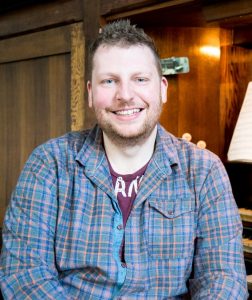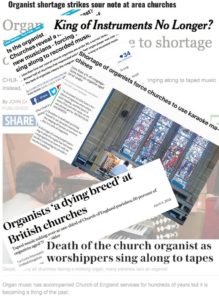Category Archives: Education
Education Day, 15 January, 2022
Education Day, 15 January, 2022
SSLSO Education Initiative 2021
SSLSO Education Initiative
‘Introducing the organ’ scheme – awards to be announced shortly!
The Southwark & South London Society of Organists has launched a new education initiative for 2019. Our ‘Introducing the Organ’ scheme is a wonderful opportunity for organ enthusiasts to start learning the basics of a truly fascinating instrument. Expert tuition and advice will be offered in the form of beginner organ lessons and students will benefit from the knowledge and support of our society. We hope that for some, our scheme will present the first step to discovering a life-long passion!
After the launch in April, we had a great deal of interest from potential new organists. Thank you to everyone who shared posts on social media, distributed posters or spread the word the old-fashioned way!
We were delighted to receive a wealth of entries and we thank everyone who applied. The maximum number of grants has been awarded for 2019 and we congratulate George, Daniel, Benjamin, Michelle and Geremia. They will each receive £250, designed to cover the cost of new organ music up to a value of £25, and a minimum of five, 45-minute organ lessons with a SSLSO appointed tutor or other approved teacher.
The award certificates will be presented at St George’s Cathedral in Southwark and we will keep you posted about their progress.
Thank you to everyone who has taken part so far.
SSLSO and Education: Planning for the future
Last year, the BBC World Service featured a report on the channel’s World Update Podcast entitled, ‘the decline of the church organist’. It began with a play-over of ‘Joy to the World’ before a 12-year-old student played J. S. Bach’s ‘little’ Prelude and Fugue in F major, BWV 556, at one of the Oxford colleges. The announcer introduced the programme: ‘[…this is the] iconic sound of an English Sunday morning – even for those who never go inside a church. Well, now that sound is endangered. There are just not enough young organists learning how to play the hymns and anthems of traditional worship. Where churches are doing well, pulling in the crowds, guitars and drums are taking over…’
Musicologist Dr Simon Firth went on to list some of the possible reasons for this decline: changes in the style of worship, a 50% decline in church attendance over the last 50 years, fewer services to accompany, low wages and old organs falling into disrepair.
Many of us, even if you don’t play regularly as part of worship, will have heard about or experienced issues that stem from a lack of organists in churches. You may know a church down the road that has installed a hymn machine due to no one being able to replace a retiring organist. You may have read about a disused organ being removed from a church needing more space. Or perhaps you’ve finally arranged access to try out an organ only to find that it is locked and no one knows who has the key!
But as long as organs draw air, there is hope. There’s still intense competition for organ scholarships at UK universities and ‘highflyers’ continue to pull in the crowds. Admittedly, reading about Cameron Carpenter’s touring organ may seem far removed from your instrument that the organ builder assures you is on life support. But on a local level, in our own organ society, members continue to strive to enthuse others to appreciate the organ. They plan recitals, learn exciting new pieces, organise repertoire evenings or even arrange wine tasting concerts featuring wines from all over the world accompanied by appropriate organ pieces!
The SSLSO’s aim is to support the knowledge and practice of organ-playing in Southwark and South London. As representatives of an amazing variety of organs, and to ensure that they continue to be heard in the 21st Century and beyond, we must do our bit towards encouraging new people to play the organ. To do that, SSLSO has launched an experimental education initiative. ‘Introducing the organ’ is designed around allowing people to ‘try out’ the organ and will offer funding and practical support to potential new organists.
Whilst the BBC report contained some interesting ‘food for thought’, one of the most important segments centred around how the young organist became interested in the organ in the first place: ‘someone at my church offered to let me play the organ’. Whilst our new scheme is of modest means, even the smallest amount of encouragement and enthusiasm can alter the course of people’s musical lives. And perhaps that is something that we can all think about each time we sit down at the organ.
Ashley Valentine



